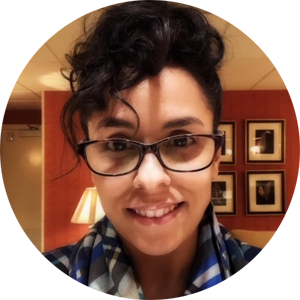Curriculum
PSY 101 General Psychology
SOC 101 Intro to Sociology
HUS 243 Introduction to Human Services
HUS 245 Human Growth and Development
HUS 307 Methods I: Individual and Family
HUS 312 Statistics I
SOC 318 Sociological Theory
HUS 319 Research Design and Analysis
HUS 441 Field Placement w/Lab
- Select Two Additional Courses:
- Psychology
- Human Services
Human Services Requirement
- Select One:
- HUS 244 Social Policy
- HUS 308 Methods II: Group and Community
Sociology Requirement
- Select One:
- ANT 201 General Anthropology
- SOC 209 Institutional Racism
Health Requirement
- Select One:
- HSC 160 Personal and Community Health
- PSY 321 Psychology of Addiction
Ethics Requirement
- Select One:
- PHL 111 Everyday Ethics
- PHL 215 Ethics
- PHL 216 Contemporary Moral Problems
- Any Ethics Course with Departmental Approval
Please find attached a suggested program sequence.
Admission Requirements
- Submit a free online application.
- Official High School Transcript or General Equivalency Diploma/GED: Submit official high school transcript or equivalent.
- Transcripts: Submit official transcripts for all accredited institutions you have attended and/or from which you earned credit.
- Résumé: A current professional résumé is required.
- Must be currently employed with at least one year of paid work experience in the human services field with 45 transferrable credit hours or three years of work experience if less than 45 transferrable credit hours have been earned.
Candidates entering the BHS Program are required to take placement tests unless they:
- Have an earned associate degree from a regionally accredited institution; or
- Are transferring English 101 or English 99 with a grade of C or better from a regionally accredited institution
You are strongly encouraged to upload your supplemental documents to your student portal. You may also email documents to sace@lincoln.edu or mail to:
Lincoln University
School of Adult and Continuing Education
Attention: Office of Admissions
3020 Market Street, Fourth Floor
Philadelphia, PA 19104
Transfer Credits
Students may transfer 90+ approved credit hours from other accredited institutions with an earned grade of C or better. Students must meet Lincoln University’s residency requirement of at 30 credit hours, of which a minimum of 15 credits must be in the major of human services.
Students can meet the requirements of the Lincoln University core curriculum and the human services major by:
- By taking and passing Lincoln university courses,
- By passing College Level Examination Program (CLEP) tests,
- By preparing professional portfolios and presentations and/or examinations documenting prior learning using The Council for Adult and Experiential Learning (CAEL) standards, and
- By transferring courses that are documented by official academic transcripts from regionally accredited academic institutions with a grade of C or better
Credits earned from previous academic studies, life-learning experiences, and professional experience will allow the student to apply for advanced standing toward the undergraduate degree. Consequently, the FLEX Program serves as an accelerated bachelor’s degree program.
Students who join the program with an Associate’s Degree from an articulated institution will be exempt from the core courses, but must still meet the requirements for the major and for the overall 120 credit graduation requirements.
Students will meet the requirements of the Lincoln University core curriculum and the human services major by taking Lincoln University courses, passing College Level Examination Program (CLEP) tests, and preparing professional portfolios and presentations documenting prior learning using The Council for Adult and Experiential Learning (CAEL) standards.
Tuition and Fees
Lincoln University’s tuition and fees are set annually by the university and remain affordable and competitive.
2020–2021 Academic Year
- Pennsylvania Resident: $480 per credit hour
- Out-of-State Resident: $743 per credit hour
Learn more about tuition and fees online.
Discover federal and state financial aid options that may be available online.
Career Opportunities
Some of the roles performed by Human Service workers are case manager to those who need support, broker to help people access community services, teacher of daily living skills, advocate for those who are unable to advocate for themselves, a mediator between clients and agencies, and caregiver to children, elders, and disabled adults.
Human services workers work in offices, hospitals, or rehab facilities under supervision. Others may spend considerable time in the field, visiting clients, doing training in sheltered workshops or day programs, or counseling in group homes.
Meet the Faculty
- Dr. James Wadley - Program Chair and Professor
Apply to SACE Request More SACE InformationContact Us About SACE


